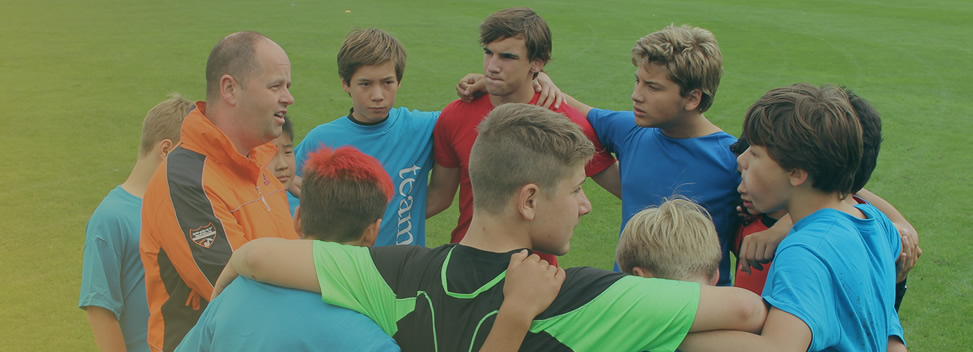How to keep teenagers in Sport
- June 16th, 2016
- Camilla Chapman

In a recent study conducted by the National Alliance for Youth Sports, around 70% of kids in the United States stop playing sport at the age of 13. Most of these kids will give up sports to pursue other interests or simply because they find that sport isn't 'fun' any longer. We take a look into the reasons behind this alarmingly-high percentage and how we, as coaches and parents, can help prevent this statistic rising even higher.
As kids grow older and approach the potentially troublesome teen years, other things will begin to take their interest and leave them less willing to commit their time to playing sport. For example, making a school team could mean a bigger level of commitment, therefore leaving little or no time for other interests.
Furthermore, social media and smartphones play a massive part of a teenager's social life, as well as wanting to socialise more with friends. Although you can argue to them that playing with a team can be hugely beneficial to them, their priorities will change on how they wish to spend their time, with potentially an increased use of a mobile phone.
There is often enormous pressure on youngsters to be successful but parents can often feel the pressure too; every parent wants their children to succeed. However if too much pressure is on a kid to be the best at the sport they do, it'll make it hard for them to play just purely for the fun of it. With playing in a competitive environment, there are less opportunities to play for enjoyment and creates more pressure to do well, therefore limiting opportunities to play for fun.
Teenagers can often fear failure and school is just one example of this, where teenagers are pressured with numerous tests and are expected to achieve. The underlying issue is that many will believe that if they don't do as well as expected, then they are a failure, which could lead to teenagers developing depression and anxiety.
How can we help teenagers stay in sport?
As coaches, relieve the pressure on your young players and talk to them; communication is key to helping you and your players understand what they want from sport and you can give them support on what to do. If they have ambitions of playing at a higher level of sport, then encourage them and give them a helping hand to achieve their dream.
However if they simply want to have fun, then don't pressurize them and make them feel that if they're not succeeding, they're not failing. At a youth level of sport, it's often not always about winning, it's all about enjoyment!
Don't become a pushy parent! Behave on the touchline; by all means, give constructive feedback and encouragement, but verbally abusing those on the pitch will affect your kid's attitude to the game. With shouting negative abuse from the sideline, your child could get embarrassed and then not enjoy the game as much, particularly if this becomes a regular feature when you attend their games. Don't push them into playing a particular sport that you want them to play, let them choose themselves and then give them the support they need.
Make sure that they're having fun! This is particularly important if you're a coach so to keep your players committed, create fun sessions and watch your players leave training with smiles on their faces. Not only will it benefit players and make them want to continue playing, but your team's spirit and cohesion will improve, if your players are happy.
For more information, check out this article from the Washington Post.